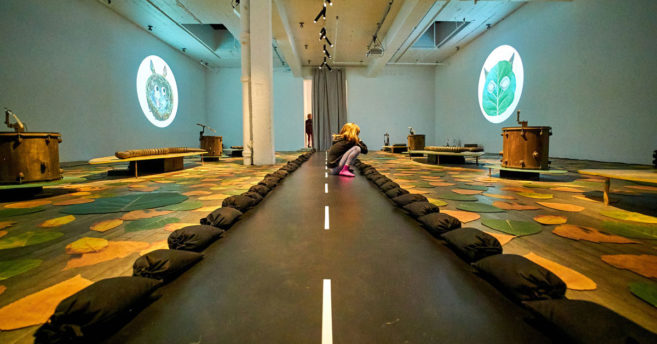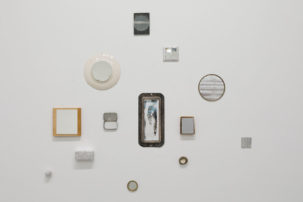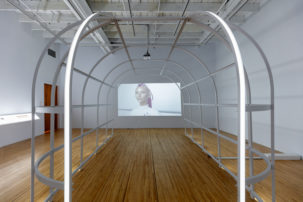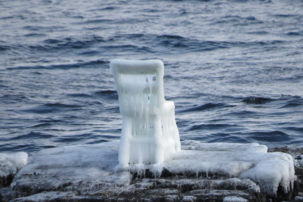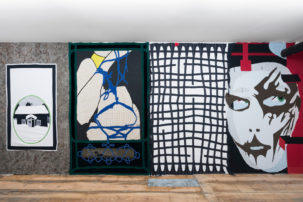Sporting analogies are useful when looking at Blue Republic’s latest show, “Weather Report.” Stepping into the ring of their multi-part installation at Georgia Scherman Projects, it was clear what you needed to do: wrestle meaning to the ground. The exhibition’s parts may have looked disparate, but together they worked to shift meaning around the gallery—suggesting any number of ways to follow it. This dissembling is a strategy for the art-making; the artists deliberately scheme to ensure viewer engagement with the work.
In the room-filling sculptural assemblage Low Resolution Manifold, from the ongoing Beautiful Infections series, monumentality battles with its undoing. Assorted household items—cardboard tubes, scraps of wood, tin cans and plastic bottle caps—form the visage of a city. Like the parts from which it is made, the allusion is makeshift. In the provisional artwork you also come to see something provisional in the thing it represents. References in Blue Republic’s work range widely, from pith helmets to the Holocaust by way of the civil war in Sierra Leone. View these topics through the lens of the artists’ depiction (respectively: as crumbling clay replicas, pinpricks on a piece of white paper, and amputated bananas photographed on a stunning lue background) for the insight that our civilization is persistent, if fragile, and always in flux.
In conversation, Anna Passakas, who has worked with her partner Radoslaw Kudlinski as Blue Republic since 1992, elaborates on the thought. A paradigm shift as dramatic as the one our culture is currently experiencing, she says, requires nothing less than a constant— and indeed shifting—response. This also goes for certain assumptions the pair make about the intelligence of their audience. By indirectly addressing weighty topics, they suggest that concrete understanding is something arrived at through a process that is dynamic, contingent and only complete in the presence of an audience.
The idea that contingency can prompt active spectatorship is nicely encapsulated in the artists’ Water Drawings (2009). In the show, this photographic series is appropriately hung near the exhibition’s entrance. Simple objects have been drawn with water, in situ, on the hard rock of the Canadian Shield, and then photographed. A sketch of a window is discernable and yet also clearly evaporating. In the contest of nature versus culture, there is no doubt which party is the more ephemeral. In this inescapable fact lies a kernel of hope. Like water and weather reports, conditions of change always point to the possibility of a bigger, more intense transformation.
This is an article from the Winter 2010/11 issue of Canadian Art. To read more from this issue, please visit its table of contents.

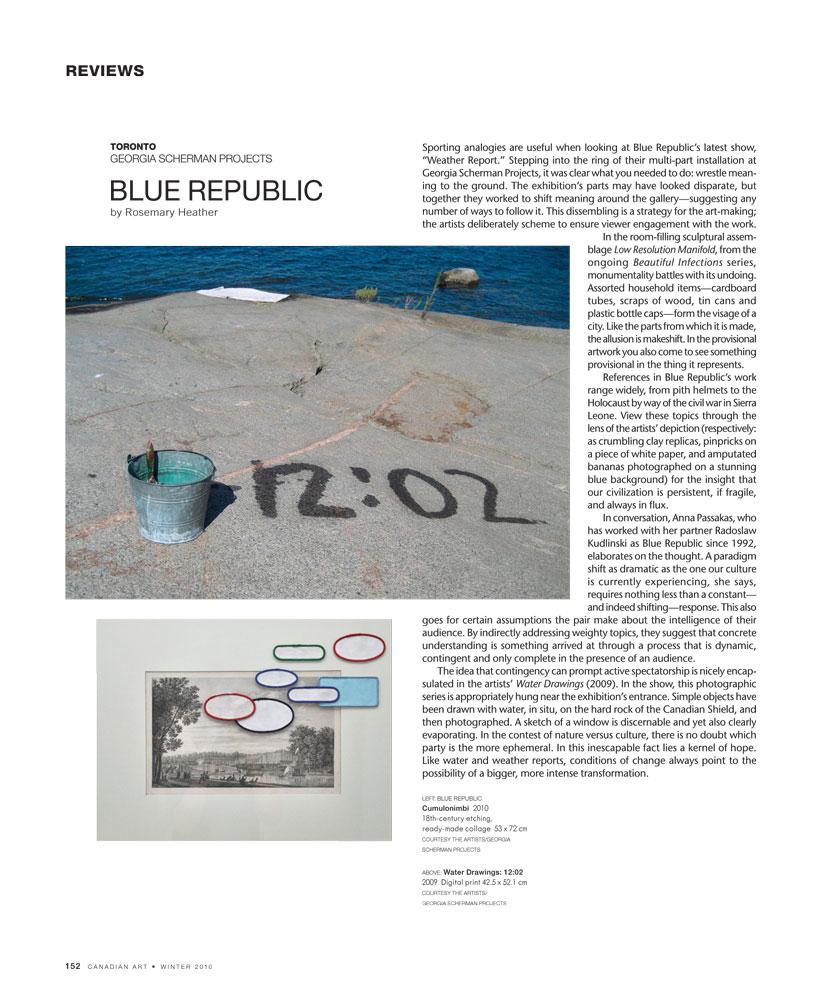 Blue Republic, spread from the Winter 2010/11 issue of Canadian Art
Blue Republic, spread from the Winter 2010/11 issue of Canadian Art
